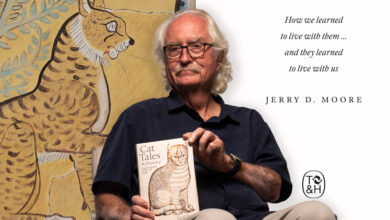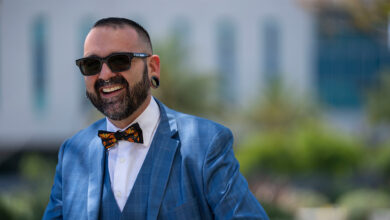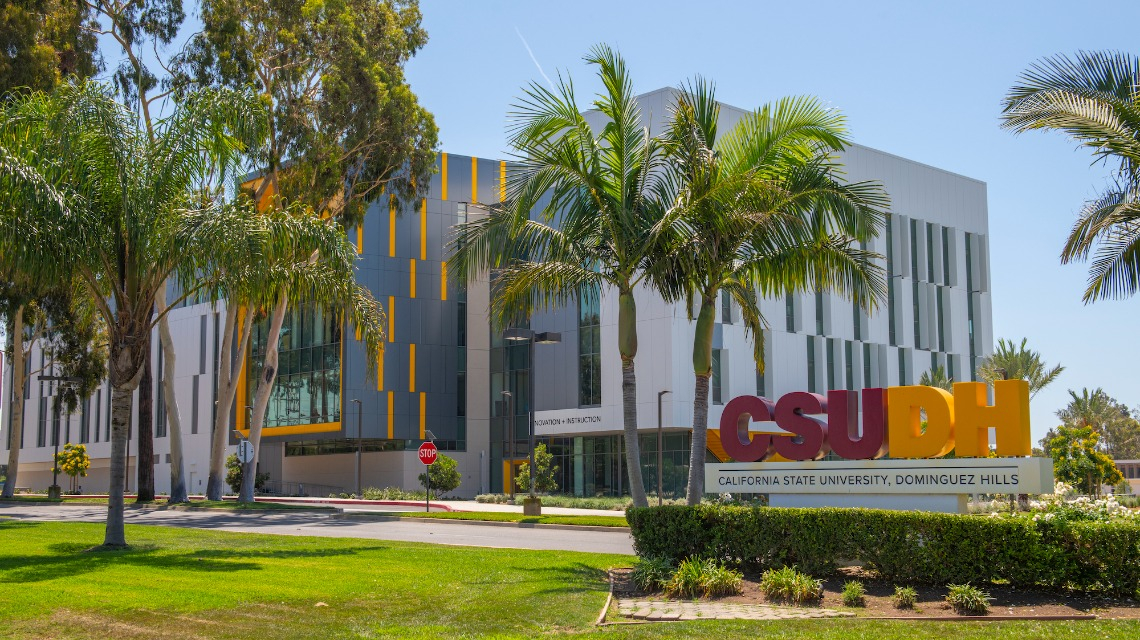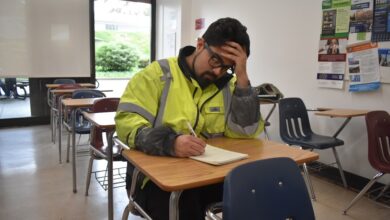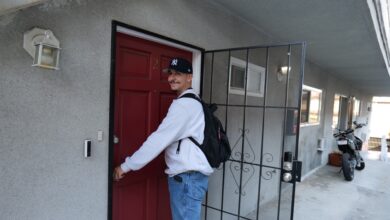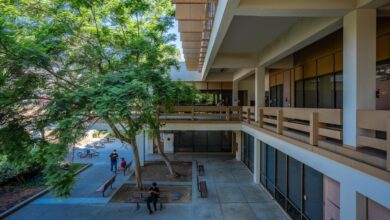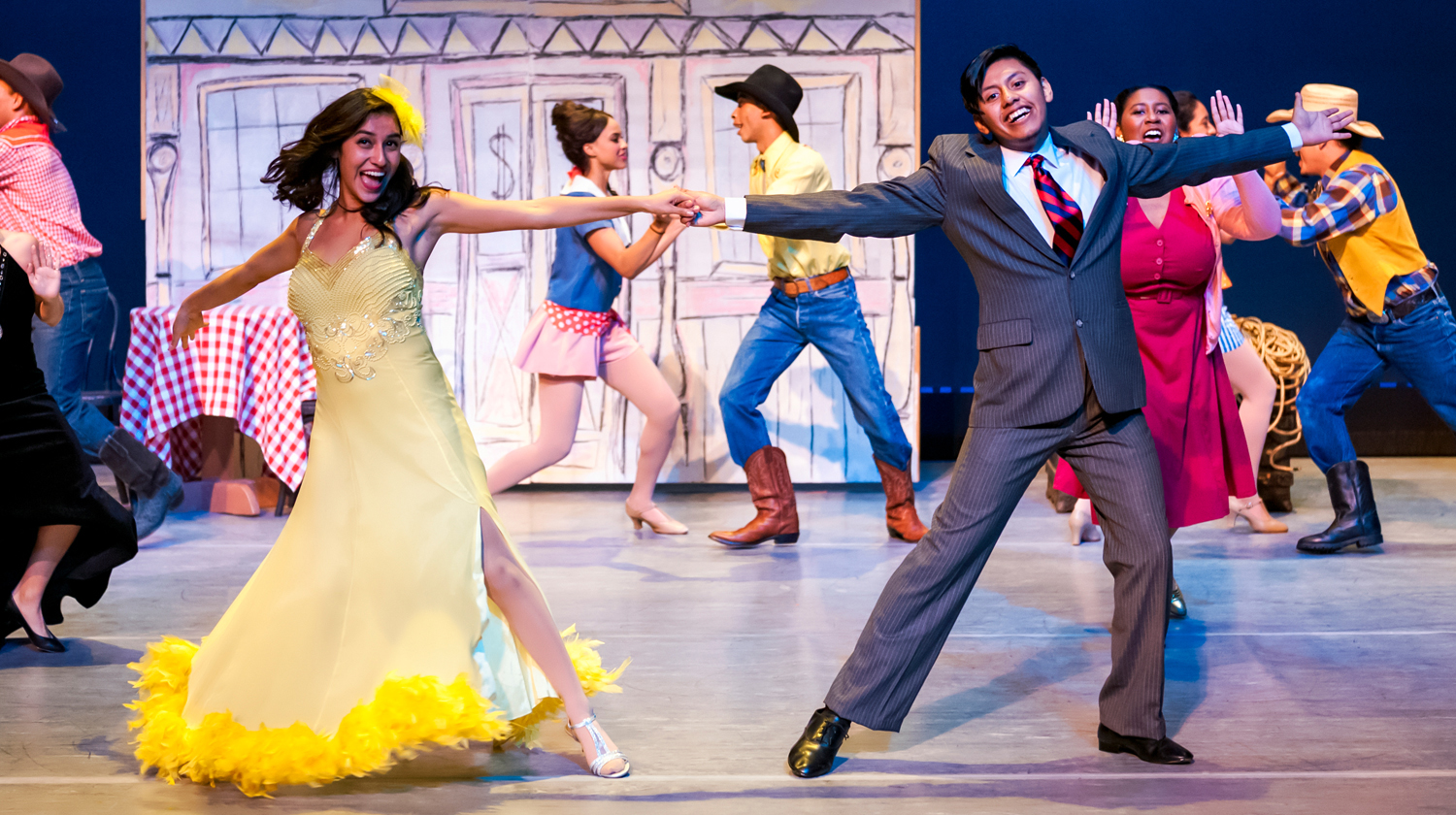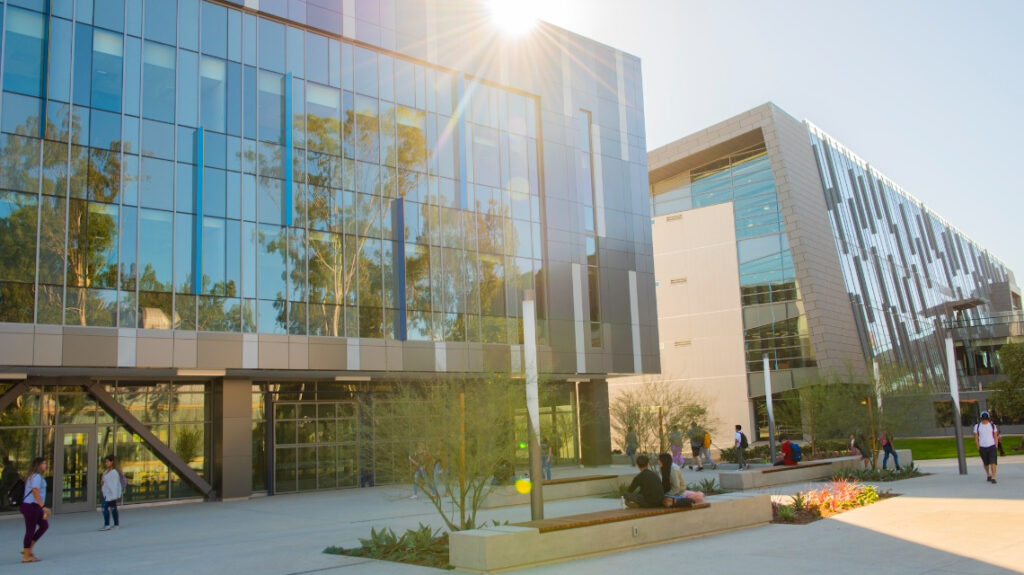
Meet more of the 19 new faculty members who joined CSUDH this fall. Part two of the series features faculty from the College of Health, Human Services, and Nursing, the College of Natural and Behavioral Sciences, and the College of Arts and Humanities. Part one of this series included faculty from the College of Arts and Humanities, the College of Business Administration and Public Policy, and the College of Education.
College of Arts and Humanities
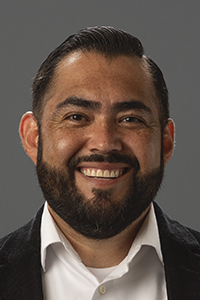
Alfredo Carlos, Assistant Professor, Labor Studies
Academic Background:
PhD, Political Science, UC Irvine
Professional Biography:
Carlos recently served as the Interim Director of Chicano Studies at Eastern Washington University, and was a former faculty member in Political Science at California State University, Long Beach. He is the founder and director of the Foundation for Economic Democracy, an organization that promotes democratic worker ownership of businesses and community ownership of land and housing. He is also the co-author of The Latino Question, which was named “Best Book in Latino Politics” in 2019 by the American Political Science Association.
Carlos proudly grew up in the Los Angeles/Long Beach Harbor area in an immigrant working class family and community, which has informed his education and given him purpose to struggle for economic and racial justice in solidarity with working people trying to live with dignity. He is excited to work with students that come from the same types of communities in which he grew up, and hopes to connect them to social justice work in the L.A. and Harbor areas.
Research Interests:
Political economy, labor and inequality, economic democracy and worker and community ownership, Mexican, Chicano and Latino politics, racial and ethnic politics, immigration, social movements, postcolonial and critical theory
Why This Subject Matters:
“I study worker and community ownership of the economy because working people, especially communities of color, are and have been struggling in our current economic contexts that put profits over people. We need to research solutions and new ways of organizing the economy that put people over profit.”
College of Health, Human Services, and Nursing
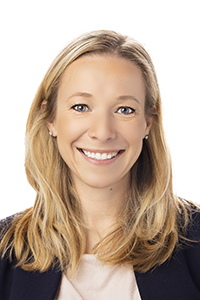
Abbie Gregory Bryant, Lecturer of Occupational Therapy/Academic Fieldwork Coordinator
Academic Background:
OTD, Occupational Therapy, University of Southern California
Professional Biography:
Bryant has worked as an occupational therapist in the field of pediatrics for the last 16 years, mostly at out-patient clinics. Her specialties have focused on sensory integration, social skills and community integration, and school-based occupational therapy for children and adolescents with special needs. In her last role, she was the director of a department that ran various social skills and community integration groups for children and teenagers. She has also been a trainer for a pediatric and adolescent assessment called the Goal Oriented Assessment of Lifeskills, and taught courses on social skills and community integration. Since January 2022, she been part time faculty with CSUDH, and is excited to be joining in a full time role.
Research Interests:
Pediatrics and adolescents, social skills and community integration, sensory integration
Why This Subject Matters:
“As an occupational therapist in pediatrics, I have worked with children and teenagers who benefit from our field’s holistic approach to supporting them in developing skills and integrating into their communities. It is important to help build their skills while helping them develop and find themselves through experiences that build their interests, hobbies, and social networks. I am excited to be joining the CSUDH community to share my experiences and passions to the next generation of occupational therapists.”
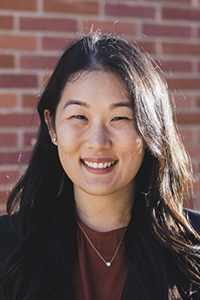
Christina Toolan, Assistant Professor of Child Development
Academic Background:
PhD, Human Development and Psychology, UCLA
Professional Biography:
Toolan has over 10 years of experience working with individuals with autism spectrum disorder (ASD) and their families through assessment, intervention, and research programs. She has expertise in interventions and assessments with minimally verbal children with ASD. She received her PhD from the Graduate School of Education at UCLA under the mentorship of Dr. Connie Kasari and completed postdoctoral training with Dr. Catherine Lord at the UCLA Center for Autism Research and Treatment.
Research Interests:
Parent-child interactions, children with limited language, and applying research-based assessment to real-world settings
Why This Subject Matters:
“Given the rising prevalence rate of ASD, the chances are high that our students will encounter autistic children, adolescents, and/or adults in their personal and professional lives. I am excited to have the opportunity to educate and mentor future child development professionals in atypical development and in understanding, accepting, and celebrating neurodiversity.”
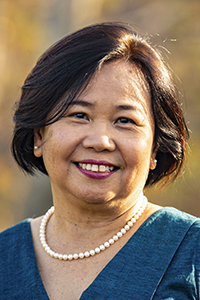
Karen Quek, Associate Professor and Chair of Marital and Family Therapy
Academic Background:
PhD, Marital and Family Therapy, Loma Linda University
Professional Biography:
Quek has been in academe for 18 years. She is dual licensed as a marriage and family therapist and as a professional clinical counselor in the state of California. She appreciates and respects cultural diversity and is dedicated to the growth of the next generation of helping professionals. Her passion is to develop culturally competent professionals. She has extensive teaching, clinical, and supervisory experiences for over 20 years in the U.S. and other parts of the world, including China, Singapore, and the Philippines. She has worked in various mental health settings including community agencies, non-profit organizations, and private practice.
Quek has achieved the national “Approved Supervisor” status of the American Association for Marriage and Family Therapy and was a commissioner for the Commission on Accreditation for Marriage and Family Therapy Education. Her innovative research and clinical focus reflect her expertise and interests in multicultural clinical work, cross-cultural family processes, couples’ relational dynamics, and intersectionality in family therapy leadership. These have resulted in numerous journal publications, books, and research presentations.
Research Interests:
Multicultural clinical work, couple relational dynamics, clinical supervision, development of the self-of-the-therapist, and intersectionality in family therapy leadership
Why This Subject Matters:
“Marriage and family therapy provides a holistic perspective to health care; we are concerned with the overall well-being of individuals and their families. Our goals are to enhance effective communication, resolve family conflict respectfully and peacefully, and create a better functioning social environment. The practice of marriage and family therapy broadens the traditional emphasis on an individual’s problem, and attends to the nature and role of individuals in primary familial networks.”
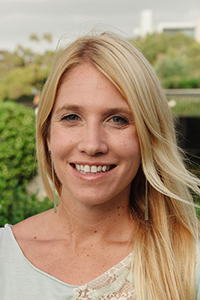
Kristen Emory, Assistant Professor of Health Sciences and Public Health
Academic Background:
PhD, Public Health (Health Behavior), UC San Diego (Joint Doctoral Program with San Diego State University)
Professional Biography:
Emory is the principal investigator of the Tobacco Related Disease Research Program’s Smoke and Vape Free Scholar Initiative, a research and advocacy scholar mentorship program. She has a plethora of experience mentoring and advising diverse and first-generation students through their academic careers. She was initially a transfer student from Modesto Junior College, so she has a special passion for helping transfer students succeed.
Research Interests:
Health equity, LGBTQ+ health, intersectionality, mental health, substance abuse and misuse, global health, unhoused populations, missing and murdered Indigenous peoples
Why This Subject Matters:
“Health equity concerns impact us all, even if we do not realize it. Part of this is elevating the volume of the voices of individuals and communities whom society often ignores. It is my belief and hope that the work I do contributes to a kinder and more equitable world; based on social justice, scientific data, love and multidimensional respect.”
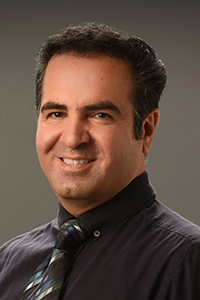
Mojtaba Kamyab, Assistant Professor of Orthotics and Prosthetics
Academic Background:
PhD, Orthotics and Prosthetics, University of Strathclyde, Glasgow
Professional Biography:
Kamyab has been an orthotist and prosthetist (O&P) for 26 years. He was a faculty member at the Iran University of Medical Sciences from 2008-2022, where he balanced clinical application, educational instruction, and research activities. He has instructed numerous O&P-related academic courses to undergrad and postgrad level students, managed thousands of O&P patients in clinical practice focusing on spinal orthotics, and has contributed to more than 50 O&P-related publications in peer-reviewed journals.
Research Interests:
Orthotics, spinal deformities, elderly people’s risk of falling
Why This Subject Matters:
“One of every seven U.S. adults live with some mobility-related disability. Orthotics and prosthetics combines health-related and engineering aspects of science with handcraft skills and art to prevent disability or manage it, helping those suffering return to life in the most natural and independent possible way. It is not only the number of students we make graduate, but the more competent graduates we have, and the more reliable knowledge we produce, that can help the future of society.”
College of Natural and Behavioral Sciences
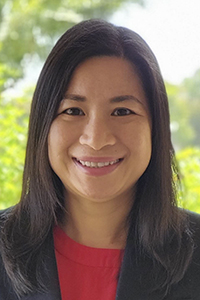
Ha Nguyen, Assistant Professor of Mathematics
Academic Background:
PhD, Mathematics, Emory University
Professional Biography:
Prior to CSUDH, Nguyen was a tenured associate professor at Georgia Southern University in Statesboro, Georgia. She is eager to return to California and be part of this amazing, diverse community at CSUDH.
Fall 2022 is her 12th year in higher education and 16th year teaching undergraduate mathematics. As a faculty member, she works with–and celebrates–students of diverse backgrounds. As a scholar, she has engaged in strong collaborations across colleges and universities resulting in 19 collaborative publications in practitioner and research journals, 54 presentations, and two posters. Nguyen also recently earned her Certified Diversity Executive (CDE)® credential to further her work and deepen knowledge in diversity, equity and inclusion.
Research Interests:
The teaching and learning of mathematics for preservice and inservice teachers and undergraduate students, teaching mathematics for social justice, and STEM teaching and learning
Why This Subject Matters:
“My passion lies in helping students engage and find joy in learning mathematics, especially through tasks and projects that help raise awareness of social issues. By supporting undergraduate students in using mathematics as a tool to make sense of the world around them, I intend to draw more students, especially those from traditionally underserved backgrounds, into STEM fields.”
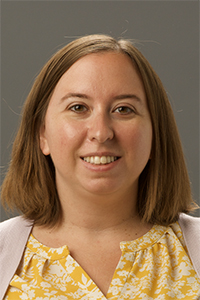
Samantha Scudder, Assistant Professor of Psychology
Academic Background:
PhD, Neurosciences, UC San Diego
Professional Biography:
Scudder fell in love with the brain and its extraordinary capacity for change as an undergraduate at Brown University, where she focused on the ability of rats to learn complex discrimination tasks. Following a research assistantship in Istanbul, Turkey, she embarked on her graduate research at UC San Diego, studying the molecular basis of these brain changes. After obtaining her PhD, she conducted postdoctoral research at New York University and UC Santa Barbara centered on evaluating the impact of drugs of abuse on brain circuits. Along the way, she’s developed a strong passion for community outreach and undergraduate education and have shared my passion for the brain with everyone from 4-year-olds to retired adults.
Research Interests:
Understanding the molecular mechanisms underlying changes in the brain during development, learning, and exposure to drugs of abuse
Why This Subject Matters:
“Each neuron in your brain is capable of forming and maintaining thousands of connections with other cells. Most of these synapses have the remarkable capacity to change in the face of new external stimuli and throughout various stages of development. Such plasticity is vital for allowing an organism to properly mature, survive, and learn to interact with its environment, but these molecular mechanisms can also go awry and lead to pathological states. I hope that my research will shed light on the underpinnings of healthy learning and development while also uncovering the ways that these mechanisms become dysfunctional or hijacked in substance use disorders and neurological diseases.”
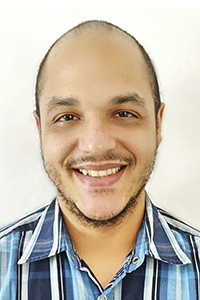
Miguel Rodriguez Velazquez, Assistant Professor of Physics
Academic Background:
PhD, Physics, Florida International University
Professional Biography:
Velazquez has conducted physics education, engineering education, and STEM education research throughout the past six years. At CSUDH, he hopes to continue his critical investigations into the experiences of students of color. He also hopes to launch a new project on the group dynamics of small group learning, to understand the underlying mechanisms of collaboration and its associated benefits.
Research Interests:
Physics education research, and diversity, equity, and inclusion in STEM
Why This Subject Matters:
“Physics matters because it’s all around us! Learning physics, and science in general, is about thinking critically about how things work. Physics is also important for students to learn so that they may be more science-conscious. Your decisions have an impact on our environment.”

